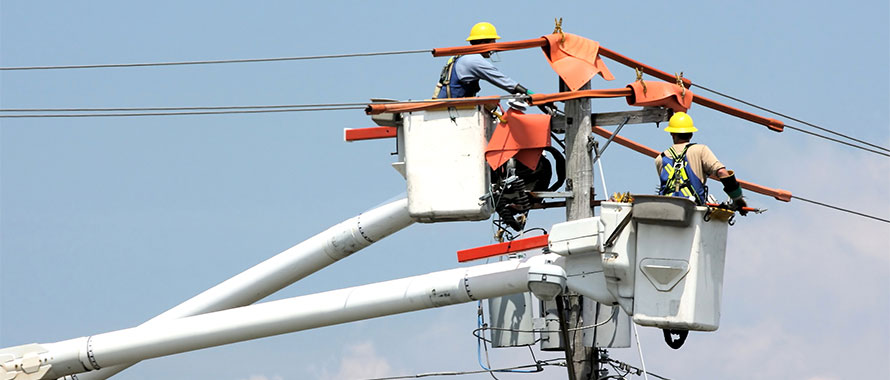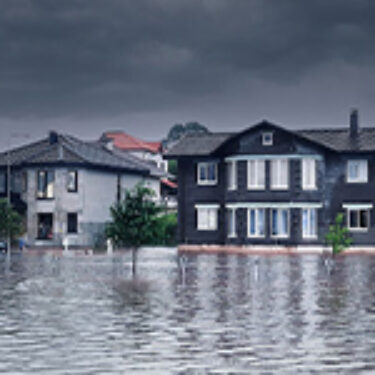Some businesses in Houston, Texas, were still struggling to get back up and running as of mid-July after Hurricane Beryl left many with prolonged power and internet outages, in addition to wind- and water-related property damage. Data from CoreLogic indicates that insured properties and businesses in Harris County could face between $210 million and $600 million in damages from the July 8 storm, with total insured losses in the state expected to reach $700 million to $1.5 billion, the Houston Chronicle reported.
Featured Solutions
In the Houston area, several large commercial building owners and property management firms reported minor to moderate property damage and continued power outages. Smaller businesses were more likely to remain closed longer, said Adam Arnold, Manager, Commercial Insurance, Burns & Wilcox, Houston, Texas.

Some of the smaller business owners are really at the mercy of the power company to get their businesses up and running, compared to the larger businesses that have generators and backup systems.
“Driving around town, you can go from one block to the next and some areas will have power and other areas will not,” Arnold said. “Some of the smaller business owners are really at the mercy of the power company to get their businesses up and running, compared to the larger businesses that have generators and backup systems.”
About 100 restaurants in the Houston and Galveston areas are taking legal action over the power outages, filing a class-action lawsuit against CenterPoint Energy for lost revenue. One restaurant owner, who is not part of the lawsuit, told Houston Public Media that losing power for one week led to at least $150,000 in lost income.
“Some properties lost power for an hour or two, and then some were still without power as of this week. That is almost two weeks without power,” said Paula Alvarez, Underwriter, Commercial Insurance, Burns & Wilcox, Houston, Texas. “We have received claims for both scenarios — power outages and flooding. That is common when a catastrophe like this arises, and we act as quickly as possible, so our clients know we are on top of it.”
Winds caused widespread damage to commercial properties
Much of the hurricane-related damage faced by Houston area property owners was due to wind, Arnold said. This includes roof damage at NRG Stadium, a venue known for its indoor/outdoor retractable roof, Fox 26 Houston reported. Area farmers, meanwhile, reported damaged crops, broken fences and various impacts on animals, the Associated Press reported July 14.
“This storm was more of a wind event than anything. We did not have a ton of flooding or rain, but we did have sustained winds in a lot of areas that caused a lot of minor damage,” Arnold said. “Depending on their Commercial Property Insurance, many claims may be under the policy holder’s deductible resulting in less paid claims from the insurance companies.”
Power outages were another significant source of losses. The owner of the Dandelion Cafe in Houston said she lost nearly $50,000 from the outages, including eggs, buttermilk and other food that could not be salvaged, the Austin American-Statesman reported. Power outages are not always covered under Commercial Property Insurance, Alvarez said, but some policies offer enhancements that could trigger coverage in cases such as food spoilage.
“There could be different endorsements under that policy that could provide coverage for food that has gone bad, contamination or spoilage. There are solutions for that,” she said. “Other policies can apply specifically for power outages or appliances, and their insurance broker can help them find that specific coverage.”
While flooding was not as widespread with this storm, some areas received up to 12 inches of rainfall between July 7-9, the Austin American-Statesman reported, and residents facing water intrusion were being warned to take steps to avoid mold growth. Flood is not a covered peril under Commercial Property Insurance, yet separate coverage through FEMA’s National Flood Insurance Program (NFIP) or the private Flood Insurance market “is easily overlooked,” Arnold said.
“Every policyholder in the Houston area would have some sort of exposure to flood,” he said. “A lot of property owners just feel that they do not need flood coverage because their mortgage does not require it, but they still have a major flood exposure.”
According to Alvarez, some property owners could seek out FEMA emergency funds, but this would not replace Flood Insurance. “A Flood Insurance policy would cover damage to your dwelling, property, contents, and could cover loss of business income as well,” she said.
Finding insurance coverage for business income loss
In addition to lost revenue faced by restaurants and other businesses as they dealt with power outages and property damage after Hurricane Beryl, sources in Corpus Christi, Texas, said “millions and millions of dollars” were impacted due to the evacuation of tourists in advance of the storm, KIIITV reported. For other businesses, the return to normalcy was delayed due to employees being unable to work due to power outages at home, the Houston Chronicle reported.

On a Commercial Property Insurance policy, we have the capability to get business income with extra expenses covered.
As a storm approaches, “the immediate reaction of employers is for employees to stay home and be safe,” Arnold said. “When they are at home and they have no power, business basically stops.”
Commercial Property Insurance can cover loss of business income in many cases and business owners should discuss this option with their insurance broker. “I would encourage any business owner to have business income coverage,” he said. “That is going to cover them while they are not able to generate any income. They should ask that question of their broker and if it is not covered, inquire what it would cost to get it.”
According to Alvarez, power outages are a common cause of lost business revenue, along with time that a business must remain closed while storm-related property damage is repaired. “They have to shut down their business and they are not getting their clientele to come in,” she said. “On a Commercial Property Insurance policy, we have the capability to get business income with extra expenses covered. That can help them recover from the time they were shut down.”
Policies with this endorsement often include a waiting period of 72 hours before coverage is triggered, Alvarez noted. “Any business that is generating income should have this coverage,” she said.
Every policy is worded differently, Arnold added, and coverage for business income may or may not be automatic. “You really have to review your policy in depth to see what coverage you have,” he said.
Business owners should also consider ways to minimize their losses in the event of severe weather. For example, generators may help businesses reopen sooner when power outages occur, Alvarez said. “In this area where we are prone to have catastrophes like hurricanes, tornadoes, and windstorms, it is highly recommended for business owners to acquire something like a generator to help them,” she said. “These are solutions that can be provided upfront so business owners are not affected as much as they could be.”
How business owners can mitigate risks
Hurricane Beryl exceeded expectations for an early-season hurricane due to warmer water temperatures that made it behave “like a September hurricane,” CNN recently reported. This could point to a busier hurricane season ahead, experts cautioned.

There is a lot of property out there that is insured but not insured to the value that it really should be.
With this in mind, business owners are encouraged to take a close look at their insurance policies, Arnold said. “Right now, is an important time for everyone to take a step back and evaluate their insurance coverage. Meet with your insurance broker and make sure you have not only the appropriate coverage, but enough coverage. We have seen a significant change in the last few years in our economy and the value of buildings is increasing in a big way. There is a lot of property out there that is insured but not insured to the value that it really should be.”
With the cost of materials and labor on the rise, construction is much more expensive than it was in the past — and many commercial properties could be underinsured, he noted.
“Do you have enough coverage to rebuild your property? That is the key,” Arnold said. “It is a good idea to sit down with your broker annually and go through every exposure you have to make sure you are covered properly.”

Always be curious about your coverage. Once a claim happens and you discover there is no coverage, unfortunately it is too late.
Alvarez agreed, encouraging business owners to “present those ‘what-if’ questions” when reviewing their policies. “Always be curious about your coverage,” she said. “Once a claim happens and you discover there is no coverage, unfortunately it is too late.”
Keeping up with recommended maintenance is also important, Arnold said. “There is no way to fully avoid being affected by something like [a hurricane]. As a commercial property owner, one of the best things you can do to protect yourself is building upkeep and maintenance,” he said. “Make sure you are doing all the recommended maintenance and upkeep because that is going to make your building stronger and better-prepared in the event a storm hits.”








